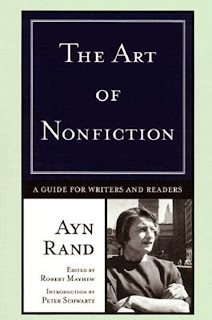During the National Football Conference championship game between the Denver Broncos and the New England Patriots, I googled "Why does Peyton Manning say Omaha?" During that game, which quarterback Manning's team won, he yelled "Omaha" more than 50 times before taking a snap from the center to begin a play.
I was surprised to find that every reporter who weighed in on this word cared only about what Manning means when he shouts it, not why he chose it. We writers are always interested in why someone chooses one word over another. What I wanted to know is why he chose Omaha and not Cherokee, radio, pussycat, or any other word. Of course, everything a quarterback says when calling signals at the line of scrimmage is meant to deceive the opposing team. So why would Manning tell us why he says it? That leaves me with the more interesting question, at least for me, of why he, and his arch rival Tom Brady before him, chose Omaha.
The name Omaha is rich in American history. The American native Omaha people come to mind. Their tribe lost much of its land illegally in the nineteenth century during the Western expansion of the United States. We also associate the word with the code name Omaha Beach used by US forces on D-Day, June 6, 1944, when they assaulted beachheads in Normandy, France, resulting in the loss of many American and German lives. So did Manning choose Omaha because of the purely American or military imagery it conjures? For that matter, did he really think as much about the word as I have?
The Manning play call has certainly started a craze. Some companies with Omaha in their name are donating $500 to Manning's philanthropic foundation for every time he says the word in a game. The city of Omaha, Nebraska, keeps coming up with ways to capitalize on the welcomed attention it is getting as well. All things Omaha want to sign Manning to endorsement deals.
Anyway, you can enjoy the Super Bowl not only by keeping score of the game but by counting Manning's Omahas.
I was surprised to find that every reporter who weighed in on this word cared only about what Manning means when he shouts it, not why he chose it. We writers are always interested in why someone chooses one word over another. What I wanted to know is why he chose Omaha and not Cherokee, radio, pussycat, or any other word. Of course, everything a quarterback says when calling signals at the line of scrimmage is meant to deceive the opposing team. So why would Manning tell us why he says it? That leaves me with the more interesting question, at least for me, of why he, and his arch rival Tom Brady before him, chose Omaha.
The name Omaha is rich in American history. The American native Omaha people come to mind. Their tribe lost much of its land illegally in the nineteenth century during the Western expansion of the United States. We also associate the word with the code name Omaha Beach used by US forces on D-Day, June 6, 1944, when they assaulted beachheads in Normandy, France, resulting in the loss of many American and German lives. So did Manning choose Omaha because of the purely American or military imagery it conjures? For that matter, did he really think as much about the word as I have?
The Manning play call has certainly started a craze. Some companies with Omaha in their name are donating $500 to Manning's philanthropic foundation for every time he says the word in a game. The city of Omaha, Nebraska, keeps coming up with ways to capitalize on the welcomed attention it is getting as well. All things Omaha want to sign Manning to endorsement deals.
Anyway, you can enjoy the Super Bowl not only by keeping score of the game but by counting Manning's Omahas.






